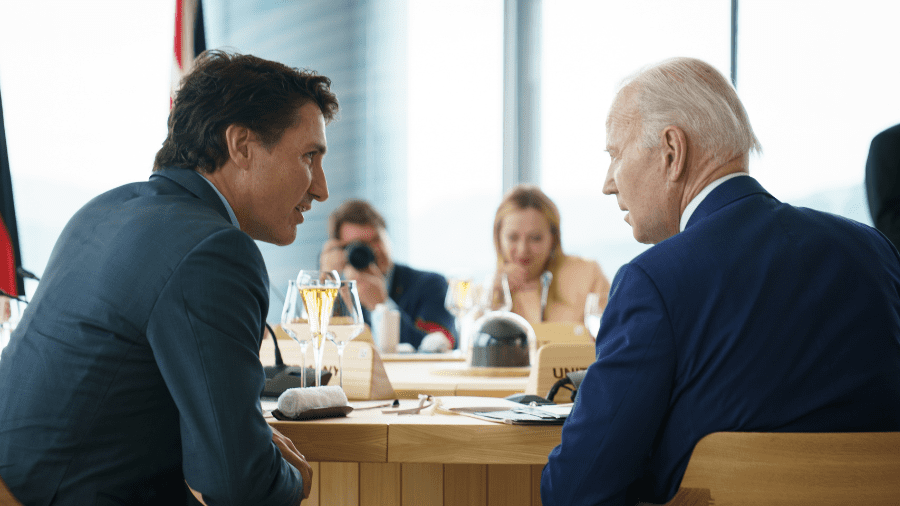This article originally appeared in the Hub.
By Aaron Wudrick, August 14, 2023
2015 must feel like an awfully long time ago for battle-scarred veterans of the Trudeau government. Sweeping into office on a wave of positivity, armed with a majority mandate and a fresh-faced cabinet, everything was coming up Justin.
His was to be a government that was utterly enamored of technology and innovation, even going so far as to rechristen the federal department formerly known as “Industry” as the Department of “Innovation, science and economic development.” Similarly, the Trudeau government prided itself on being professional managers of the country’s relationship with our neighbours to the south—first with the kindred spirits of the outgoing Obama administration, and then later with the mercurial Trump administration, even managing to stickhandle NAFTA’s renegotiation into CUSMA in such a way that earned them plaudits from across the political spectrum.
Fast forward to 2023 and, as with all long-in-the-tooth governments, the political baggage is starting to pile up. With an election at most two years away, the Liberals are looking for any and every opportunity to revive their flagging polling numbers. Unfortunately for Canadians, they appear to have decided that making cartoon villains out of “big tech” and risking a trade war with Uncle Sam might be just the ticket.
Consider first the recently passed bill C-18, otherwise known as the Online News Act. That bill—which was intended to rescue Canada’s floundering legacy media outlets by imposing a link tax on Google and Meta—backfired spectacularly when both companies announced they would simply stop linking to Canadian news. But rather than acknowledge their miscalculation, the government decided to double down and try to make some political lemonade out of a policy lemon by attempting to reframe what is essentially a shakedown into a noble crusade in which the fate of our very democracy hangs in the balance.
Apparently they feel things have been going so well with C-18 that they’re keen to find other ways to poke the Americans in the eye. They appear to have found it in the form of a proposed digital services tax (DST) that would apply primarily to U.S. tech giants like Amazon, on the basis that these companies are not paying taxes in proportion to the amount of business they do in Canada. This complaint is hardly unique to Canada, and in recent years, all OECD countries including Canada have agreed that a multilateral effort is the best way to tackle this problem. But while every other major player has agreed to defer imposing any new DST and continue talking, Canada plans to go ahead in January 2024 and impose its own DST unilaterally. It’s not hard to conclude that, as with C-18, the Trudeau government has decided that looking tough against big tech makes for good politics, terrible policy be damned.
How terrible? Well, the Americans haven’t been shy about warning there’s trouble ahead. In July, U.S. Trade Representative Katherine Tai flagged it as an irritant in meetings with International Trade Minister Mary Ng. Following that meeting, U.S. Ambassador to Canada David Cohen was even more direct, stating that if Canada proceeded with its plans for a unilateral DST, his country would have “no choice but to take retaliatory measures.” And as the 2024 U.S. presidential election draws closer, you can bet that American politicians on both sides of the aisle will be taking a hard line in defence of American interests.
To wit: the Trudeau government seems willing to jeopardize a trade relationship worth around $2 billion per day to implement a ham-fisted tax that would raise less than $1 billion annually.
Every shop-worn government starts to worry about its survival, and this government would hardly be the first to flirt with bad policy on that basis. But unlike benign back-of-the-napkin campaign promises—promising to plant two billion trees leaps to mind—putting Canada’s economic relationship with our closest partner and ally at risk, because you think it might be worth a little bump in the polls, is highly irresponsible.
The Trudeau government needs to take a deep breath, step back from the precipice and drop its threat to impose a unilateral DST.
Aaron Wudrick is the Director of the Macdonald-Laurier Institute’s Domestic Policy Program.






